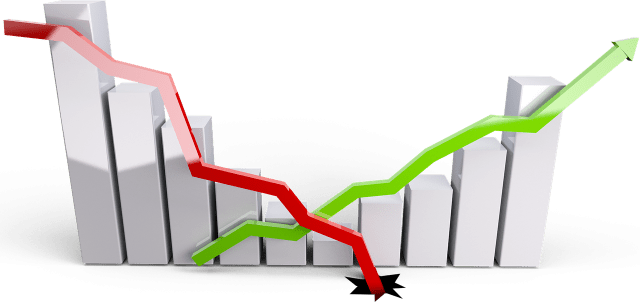Ronnie Tan, Chief Executive Officer of GAX MD, shares with Business Today in an email interview, how investment management helps reposition investment portfolios and reassure investors during market volatility.
By Sharon Chang
The finances of individuals and companies will be at crossroads in the coming months due to the impact of the Covid-19 pandemic.
Covid-19 has an unprecedented impact on markets, driving volatility to a point where meaningful changes is made in asset valuation daily.
While we reckon that investors will likely hope their investments can continue to serve them as a trusted store of value and means of wealth preservation, as we continue to spiral uncontrollably into uncertainties.
In a response to email questions, Tan says, it is important to note that this is not the first nor would it be the last market dip we may face in our lifetime.
Nevertheless, it is a good opportunity to get investments strategies in check.
The right kind of investments
There are investors holding different types of investment portfolios.
“Firstly, if you are one of those conservative investors who have suffered sharp losses recently, what you can do now is start setting aside your required emergency funds, then, later, leverage on your excess fund and plan out a long-term investment goal,” Tan advises.
He also points out that it is important to practice dollar cost averaging by starting small and invest gradually with a fixed amount regularly.
“Furthermore, always ensure your investment is well diversified.”
Time in the market is more important than timing the market
Investment strategies to adopt must best fit the investors’ risk profile; like a discipline investment methodology with well diversification of assets (comprising equities, bonds, treasury bills, gold/commodities, REITS), supported by portfolio rebalancing and optimisation driven by smart innovation.
While, also complemented by a team of professional portfolio managers who are competent to do what is best for their clients based on the investor’s risk appetite, investment horizon, income and assets – which can be tailored to the investor’s requirements whether in a bullish or bearish market.
Then, there are the value investors, Tan says, who see quality blue chips at great value to invest.
“While it might be an attractive short-term strategy to buy stocks in oil & gas, airline industry, hotel and travel-related companies whose shares have plummeted recently, it will not be wise to make hasty updates or to predict the market performance for clients, Tan explains, because the impact of the coronavirus on the economy and on the capabilities of companies has added so much uncertainties and volatilities to the market.”
Trading halts due to triggered circuit breakers seem to be the norm at this juncture, with the number of new coronavirus cases globally is just as volatile.
“And it is precisely during this economic climate where there are so much uncertainties, investment managers should advise their clients to participate in passive investment according to their risk profile via exchange-traded funds (ETFs) instruments that are well diversified over multiple asset classes.”
Recently, the local FTSE Bursa Malaysia Kuala Lumpur Composite Index (FBMKLCI) was down by about 18 percent, while S&P 500 and Dow Jones Industrial Average (DJIA) have each plummeted by about 30 percent in its year to date (YTD) performance.
Hence, it is more evident than before that now is the best time to start investing early.
Although there may be a lot of doubt and fear in the market, there are also opportunities.
However, one common mistake that many investors do is wager and try to time the market.
Instead, they should have a mindset towards a long-term investment strategy and practice diversification, Tan says.
And lastly for investors who have a bigger risk appetite – an aggressive investor – higher risk leads towards higher gains. Investment managers should give their clients the option to have multiple functional portfolios by customising them according to their preference.
According to Tan, there are three functional portfolios in MYTHEO, GAX MD’s digital investment management service which are Growth (equity-centric), Income (bond-centric) and Inflation Hedge (real asset-centric) which investors can choose from to best suit their appetite.
“MYTHEO uses an algorithm based on AI and sound investment strategies to automatically create, maintain and optimise an investment portfolio to help investors grow their wealth,” he explains.
The goal of the Growth portfolio is to obtain high returns on a long-term basis in line with the global equity market. In order to achieve this, the portfolio invests in assets with a high long-term rate of return, like stocks.
Meanwhile, the income portfolio is mainly composed of fixed-income ETFs which is designed to achieve relatively stable and steady returns with much-protected downside risks – recommended for people who are retired or do not want to take extra risks of the sudden decrease in assets while obtaining stable income at low risk.
And as for the Inflation Hedge portfolio, it is designed to match and exceed the Malaysian inflation rate. For this purpose, the portfolio focuses on investing in asset classes that tend to do well in high inflationary environment such commodity (Gold, Metal and Agriculture), Infrastructure, Real Estate and Inflation Hedge Bonds.
Hence, it is recommended for people who have already built up substantial value of assets and want to prevent the asset value from eroding due to inflation.
Tan points out that the aggressive investors who have high-risk appetite and longer investment periods should put more weightage on the Growth portfolio which is made up of diversified equity ETFs that yield higher returns.
While the aim is high returns, the Growth portfolio construction process does not rely on trying to forecast the returns of individual companies which is very difficult to do accurately.
In addition, the Growth portfolio uses optimisation techniques to minimise risk (i.e. return volatility).
In this way, aggressive investors can in a way have the best of both worlds.
___________________________________________________________________
GAX MD was granted a Capital Markets Services license by the Securities Commission Malaysia to carry out the regulated activities of fund management in relation to digital investment management.
Digital investment management is a fund management business which incorporates innovative technologies into discretionary portfolio management services.











